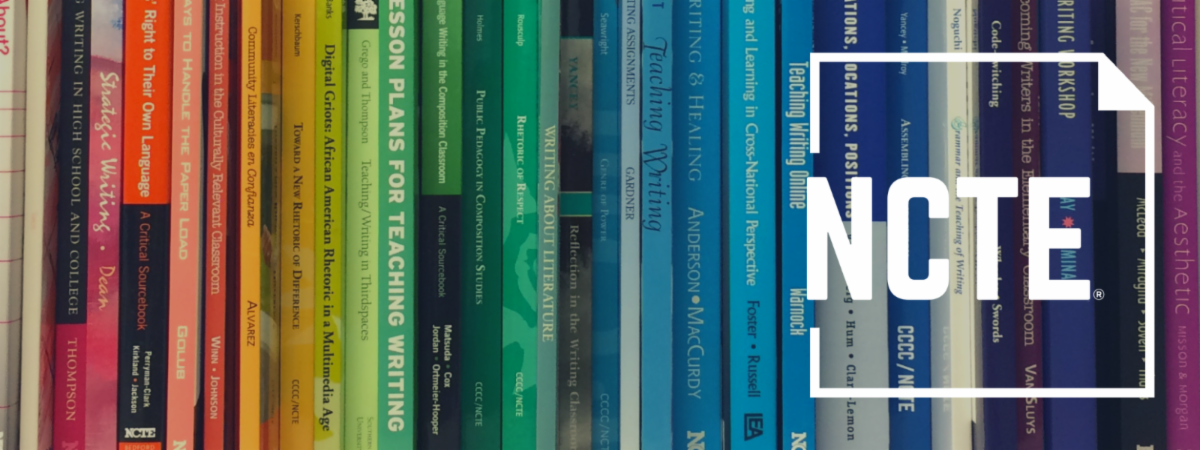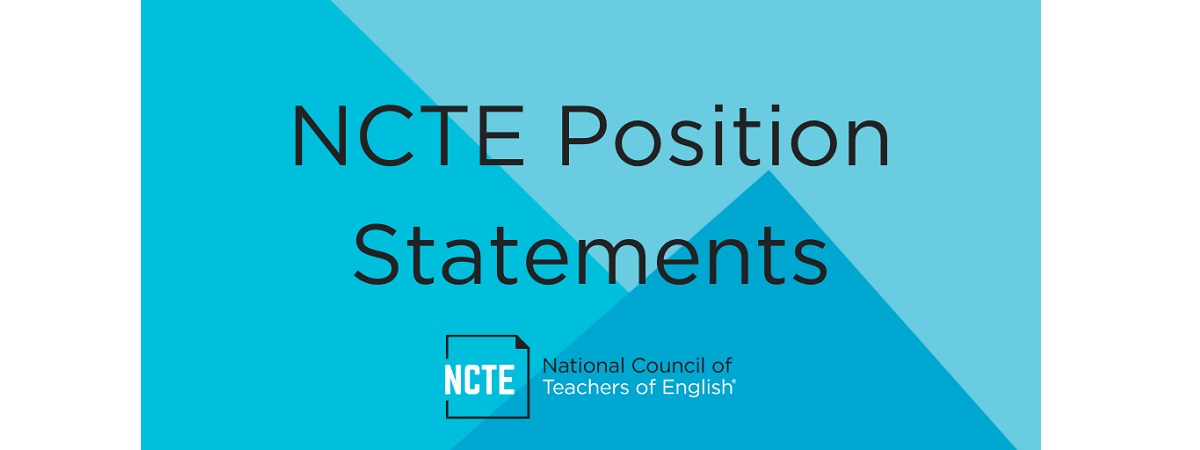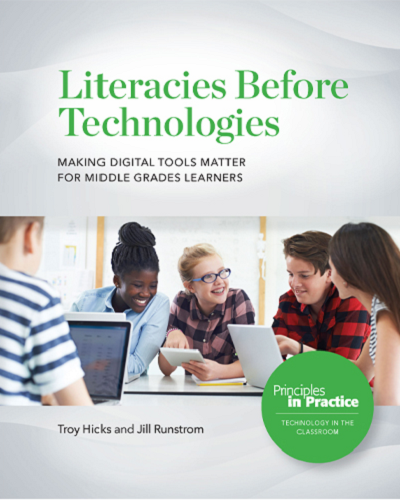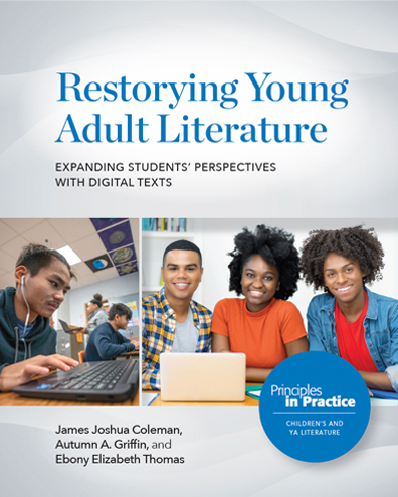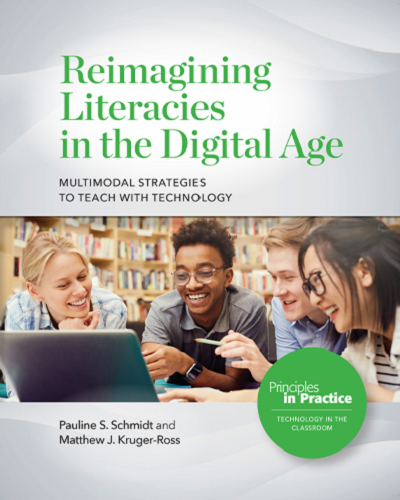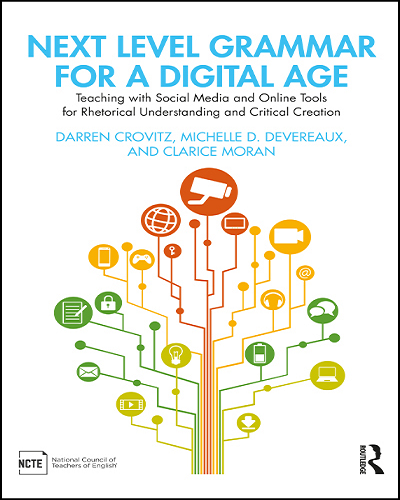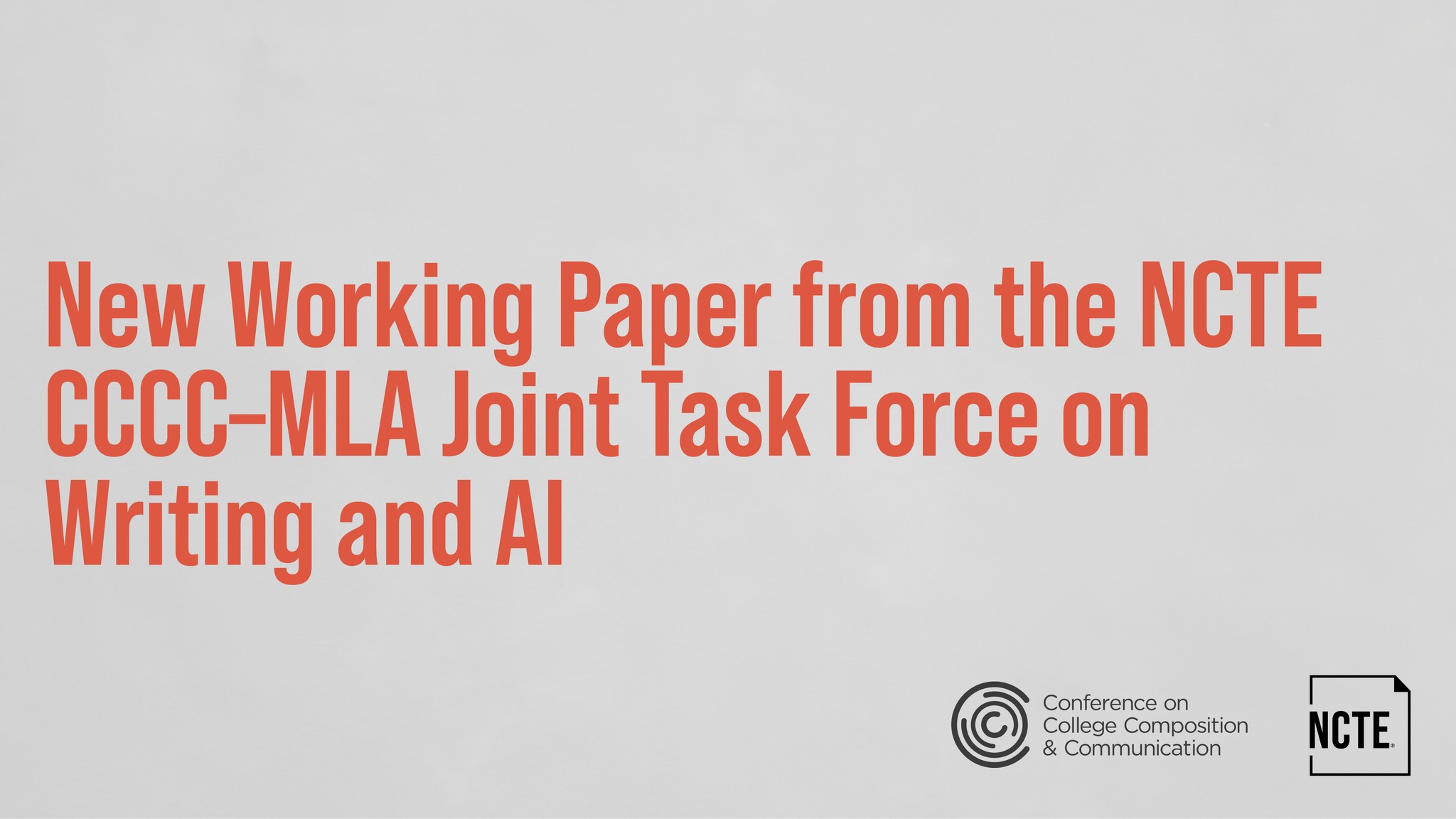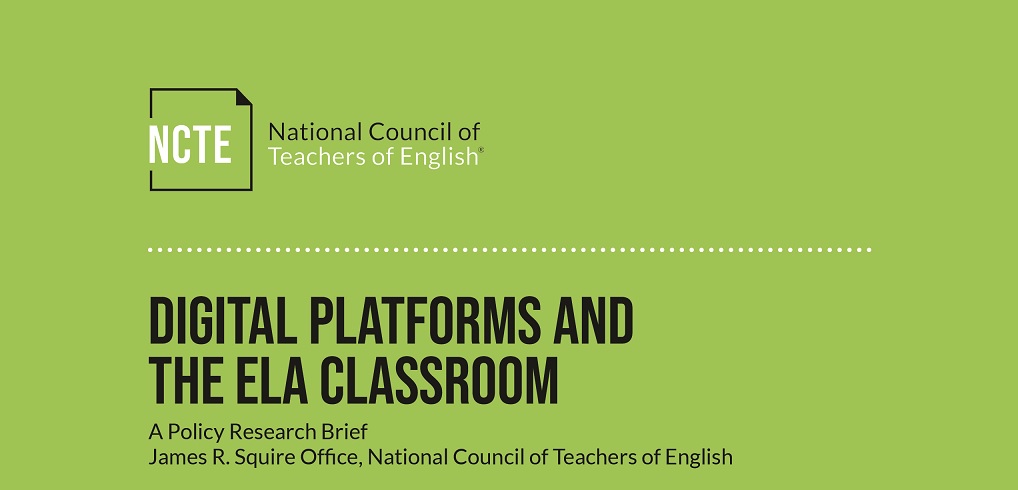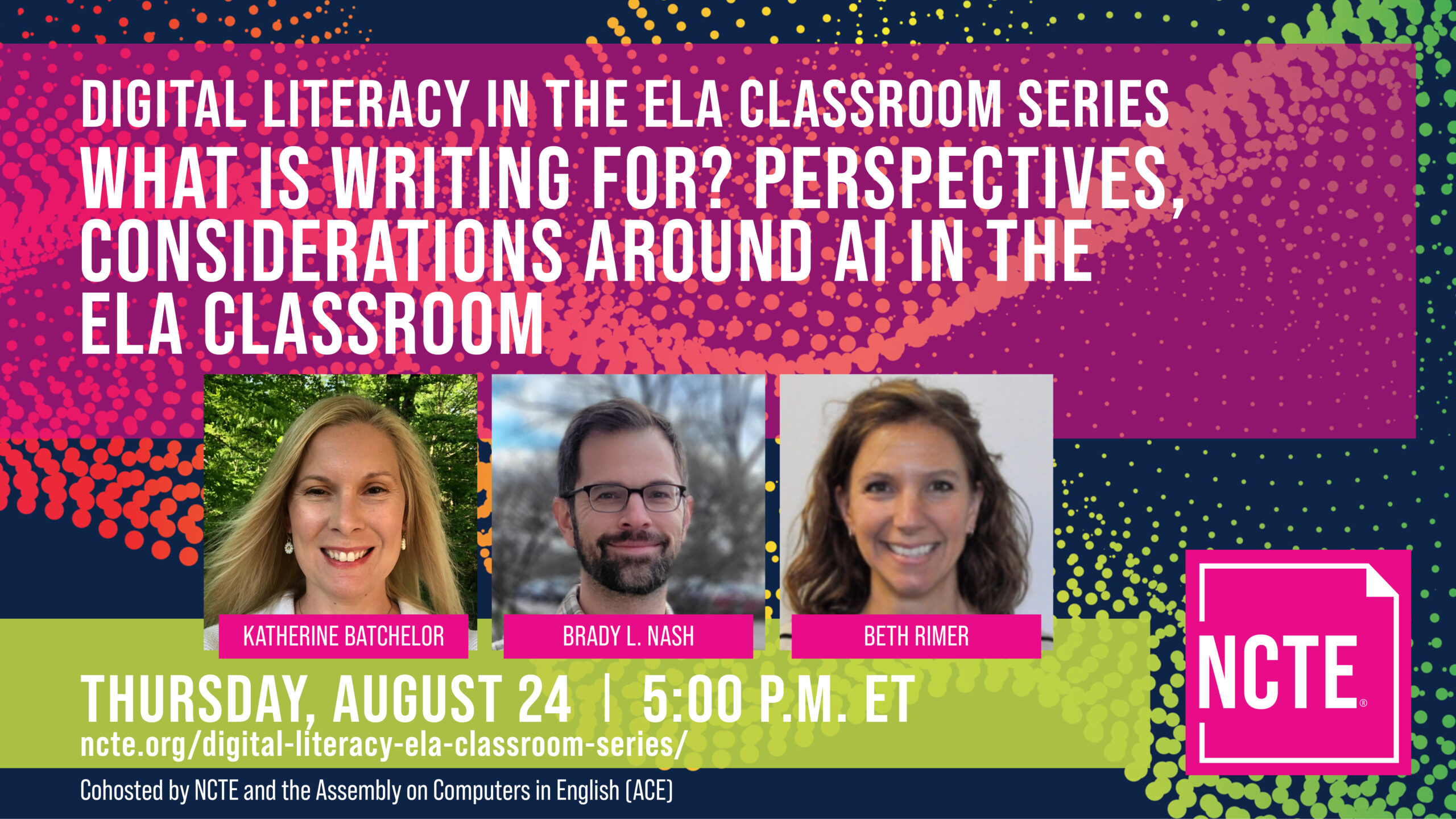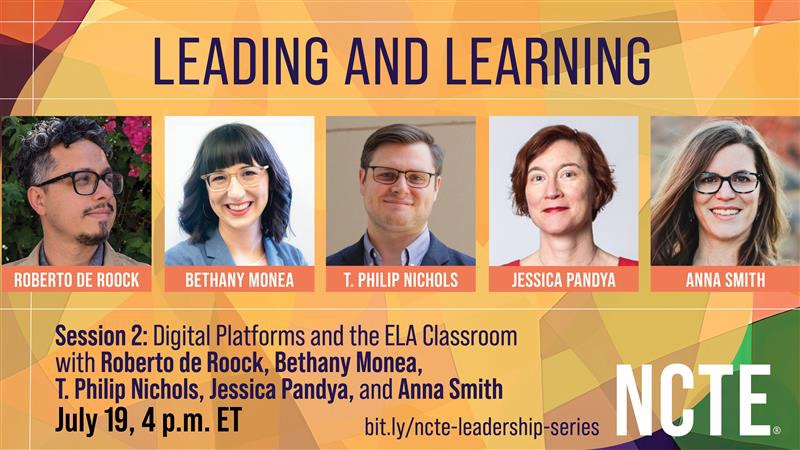EXPLORE NCTE RESOURCES
Whether you’re looking for help in navigating new technologies, integrating digital media literacy lessons, or grappling with classroom applications, NCTE has resources relevant to your digital literacy needs.
FEATURED RESOURCES
The NCTE Conference on College Composition and Communication (CCCC), in partnership with the Modern Language Association (MLA), have created a Joint Task Force on Writing and AI. As a response to the growing AI complexities educators and students have and will continue to face, the task force has released their working paper today.
The MLA-CCCC Joint Task Force on Writing and AI Working Paper: Overview of the Issues, Statement of Principles, and Recommendations is the first working paper developed by the task force. It discusses the benefits and risks of generative AI as it relates to writing, literature, and language programs.
Digital platforms are a fundamental part of today’s English language arts classroom. Students read, write, view, connect, and interact with, on, and through a kaleidoscope of digital platforms. The NCTE James R. Squire Office policy brief Digital Platforms and the ELA Classroom discusses what platforms are and how they impact teaching in the ELA classroom; concerns about data, privacy, and surveillance; and the differential impacts of platform technologies in education. Recommendations for both classroom practice and educational policy are included in the brief.
The rise of ChatGPT and similar applications that can mimic human cognitive skills and include large language models, often referred to as artificial intelligence (AI), poses foundational questions about what it means to write, what writing is for, and what it means to teach and learn writing. Much of the popular and educational discourse surrounding AI has fallen into binary, pro-con “hot takes” regarding the impact of these tools on traditional approaches to writing pedagogy and the use of writing in schools as a measurement of accumulated knowledge. In this webinar, teachers will engage in discussions of how to foster and support robust, nuanced, “both/and” conversations and approaches to AI and writing instruction in English language arts and related disciplinary contexts.
Digital platforms are a fundamental part of today’s English language arts classroom. Students read, write, view, connect, and interact with, on, and through a kaleidoscope of digital platforms. In this session, five of the authors of the NCTE James R. Squire Office policy brief Digital Platforms and the ELA Classroom will discuss what platforms are and how they impact teaching in the ELA classroom; concerns about data, privacy, and surveillance; and the differential impacts of platform technologies in education. Throughout the session, we will include recommendations for both classroom practice and educational policy.

